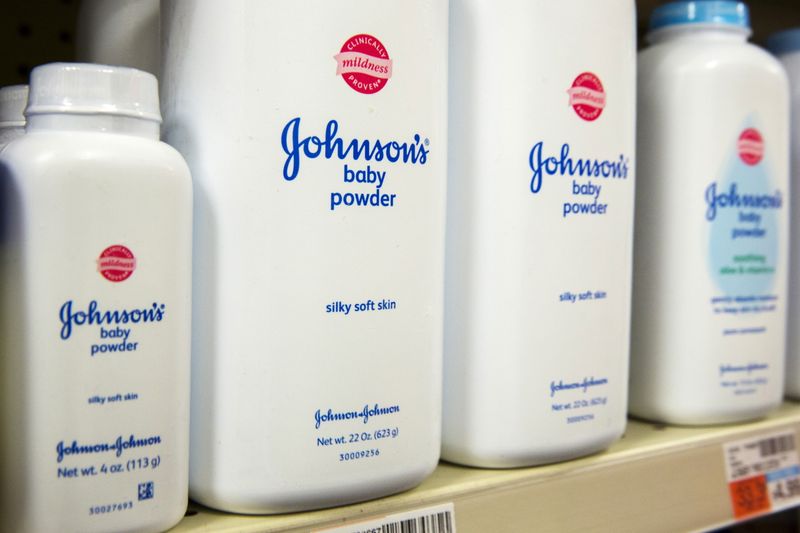By Maria Chutchian
(Reuters) - A U.S. judge is expected to announce on Wednesday whether Johnson & Johnson (NYSE:JNJ) must continue defending against tens of thousands of claims that its baby powder and other talc-containing products caused mesothelioma and ovarian cancer.
The pharmaceutical giant is banking on a ruling that would halt ongoing litigation as part of its legal strategy of shifting its talc liabilities onto a newly-created subsidiary, and placing that entity into bankruptcy.
J&J, which has maintained that its talc products are safe, has already spent nearly $1 billion defending itself in talc-related lawsuits. Settlements and verdicts have cost it about $3.5 billion more, although it has prevailed in some of the cases.
U.S. Bankruptcy Judge Craig Whitley is expected to rule in a hearing of the Chapter 11 bankruptcy case of the new J&J entity, LTL Management LLC, in Charlotte, North Carolina.
LTL has asked Whitley to extend protection against litigation that is typically given to bankrupt entities to the non-bankrupt parent company.
LTL has argued that allowing litigation to continue against J&J will defeat the purpose of the bankruptcy, which would allow the company to consolidate and resolve all of the roughly 38,000 talc-related claims.
Some of the plaintiffs suing J&J, however, argue that it should not be able to reap the benefits of bankruptcy protection without filing for bankruptcy itself and that halting litigation will prevent them from having their day in court. One major case that has been pending for five years is on the verge of trial.
A J&J spokesperson did not immediately respond to a request for comment.

Whitley said last week that he would likely issue a ruling on LTL’s request to pause the litigation against J&J at the end of a court hearing on a separate but related matter: whether he will keep the case in his court or transfer it elsewhere.
A government bankruptcy watchdog and people who are suing J&J over its talc products have moved to send the case to New Jersey, where J&J is based and where a large chunk of the talc litigation is consolidated in a federal court.